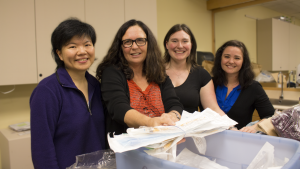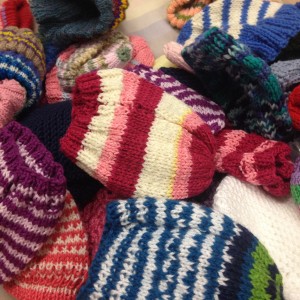“Preparing.”
In January 2015 UBC Midwifery offered the course MIDW360: Global Maternal-Infant Health. This course was a prerequisite to the global placements in Nepal and Uganda, and I’ve got to say… it’s been one of my favourites so far in the program.
The class took place over two weeks. We arrived at 9am each day and spent 6 hours together discussing and wrestling with numerous topics. Some of these topics were:
- issues of cultural safety
- maternal mortality rates around the world
- the “three delays” involved in maternal mortality (deciding to get help for an obstetric emergency, accessing transport to an appropriate care facility, receiving adequate health care at the facility)
- traditional birth attendants vs. skilled providers
- millennium development goals post 2015
- reproductive health in refugee settings
- prenatal care & anemia
- post abortion care
- pregnancy & HIV
- issues of bribery and safety
- conflict
- emergency skills (postpartum hemorrhage, shoulder dystocia, breech, unexpected twins)
- preparing teaching topics for women and student nurses (example: neonatal sepsis, post-resuscitation care, danger signs in the newborn, estimating blood loss, providing support in labour, management of the third stage of labour)
One of my favourite moments in the course was being introduced to the following video about “Mrs. X.” (https://www.youtube.com/watch?v=gS7fCvCIe1k)
MIDW 360 was a lively course that facilitated dialogue and raised questions about what the role of Canadian students abroad could and should look like. Each of us will wrestle with different issues related to global maternity care, and I look forward to learning more as we go. Talking about all of this has been stimulating, but I look forward to landing in Nepal and Uganda and engaging with what it means to support women through pregnancy and childbirth globally in a real, tangible way.
Pictured below…
1. Learning to cut umbilical cords with razor blades instead of scissors, and tie them with string rather than clamps.
2. Practicing teaching newborn care in rural settings.
3. Estimating blood loss.
4. Packing supplies.
5. New resuscitation equipment. (We’re still fundraising for 2 resuscitators. Let us know if you’d like to contribute towards them. They cost $135 each before taxes!)
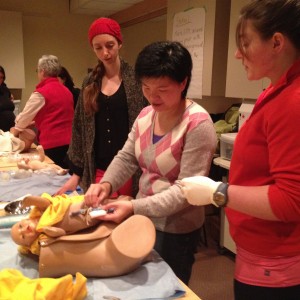
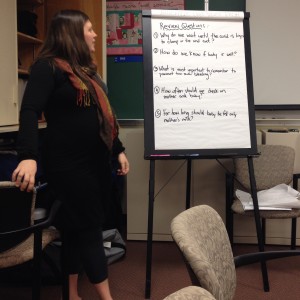
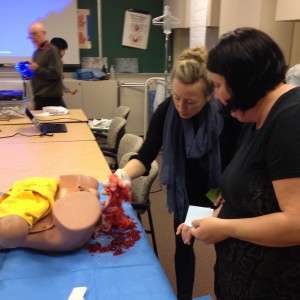
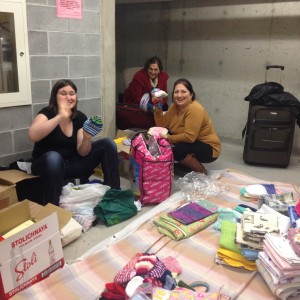
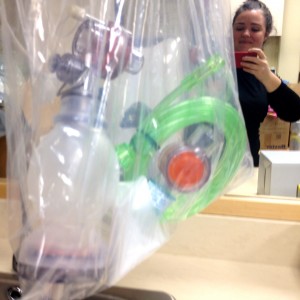
~Rachelle
